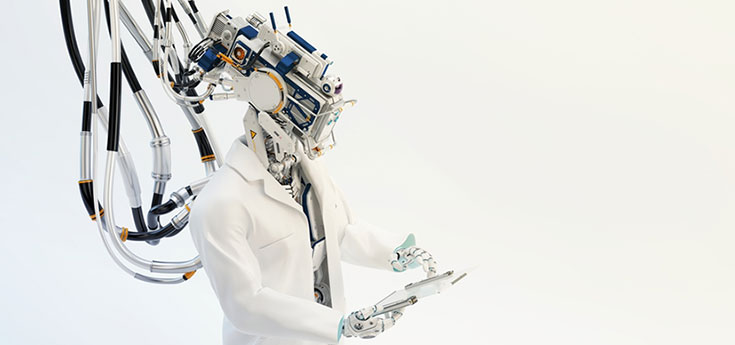Do you dread trips to the skin doctor where you get semi-naked while they get up close and personal with all your sun spots and moles?
The good news is that there have been impressive advances in artificial intelligence (AI) that can make non-intrusive checks for melanoma and the technology is significantly more accurate at detecting the cancer than a dermatologist.
In fact, the German-researched AI – also known as convolutional neural network (CNN) – detected lesions with 95 per cent accuracy, compared with human skin specialists who correctly diagnosed just 71 per cent of cases.
The discovery was made by scientists at the University of Heidelberg. They showed 58 dermatologists from across the world and an AI program more than 100,000 images of malignant melanomas and harmless moles. More than half the doctors had five years or more of clinical experience.
“The CNN works like the brain of a child,” according to Professor Holger Haenssle, senior managing physician at the university’s Department of Dermatology. He explained that the program was taught to recognise which images indicated a cancer and which did not.
“After finishing the training, we created two test sets of images from the Heidelberg library that had never been used for training and, therefore, were unknown to the CNN,” Professor Haenssle said.
“One set of 300 images was built to solely test the performance of the CNN. Before doing so, 100 of the most difficult lesions were selected to test real dermatologists in comparison to the results of the CNN.
“The CNN missed fewer melanomas, meaning it had a higher sensitivity than the dermatologists, and it misdiagnosed fewer benign moles as malignant melanoma, which means it had a higher specificity; this would result in less unnecessary surgery,” he said Professor Haenssle.
“These findings show that deep learning convolutional neural networks are capable of out-performing dermatologists, including extensively trained experts, in the task of detecting melanomas,” he said.
However, the researchers said that the difficulty in creating images on sites such as fingers, toes and scalps means that it will be a while before AI becomes the standard in clinics.
“Currently, there is no substitute for a thorough clinical examination,” they said.
Do you visit a skin doctor regularly and if so, what is the worst part of the examination? Would you trust artificial intelligence over your dermatologist’s expertise to diagnose melanoma?
Related articles:
Where cancer is most common
What to do if you spot a mole
Best sunscreen

